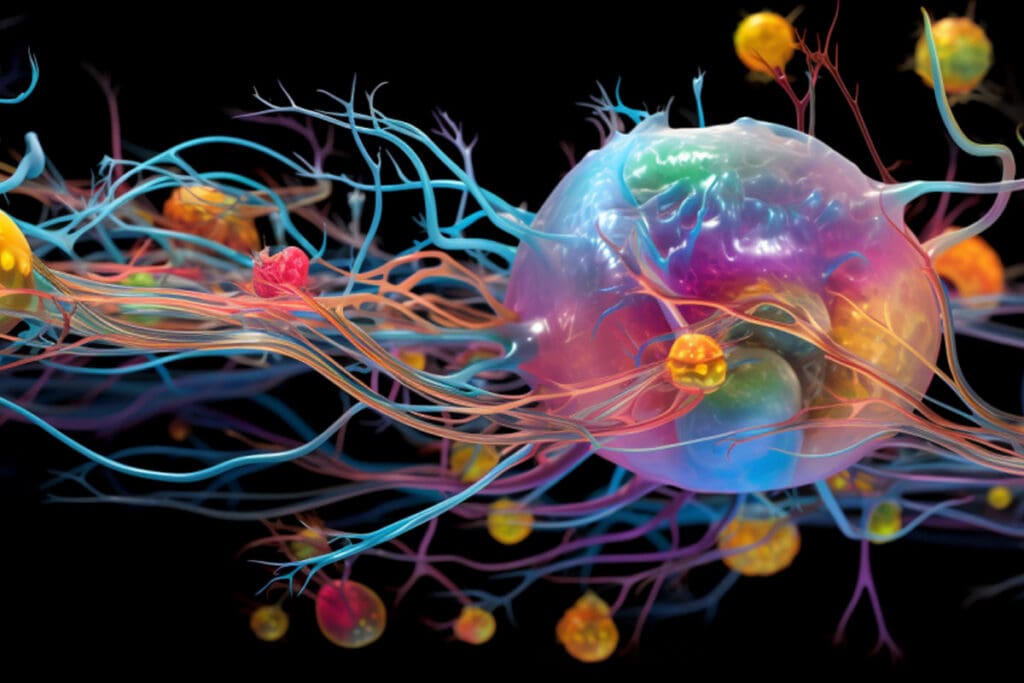Dopamine has long been associated with feelings of pleasure, but new real-time mapping of dopamine regulation has made a surprising find in that it has found a link between dopamine activity and “punishing” experiences.
Because dopamine was so closely linked with rewarding experiences, scientists weren’t aware that it might also be associated with its polar opposite – unpleasant experiences. However, the results of new research are likely to make scientists and neurologists completely rethink their perceptions of dopamine and its role in the human brain.

For the first time, a new study made a real-time map of dopamine regulation inside the brains of three humans. What scientists found was that this neurotransmitter played a greater role than solely being associated with rewards. Dopamine is also active in the process of learning from mistakes.
The new study was undertaken by researchers from Wake Forest University School of Medicine (WFUSM). The study was published in the journal Science Advances.
Read More: 10 Life Hacks to Boost Your Brain Power
Researchers Find Dopamine Far More Complex than Believed
The dopamine pathway might be far more complex and multifaceted than previously believed. The findings suggested that dopamine may play an equally significant role in processing our unpleasant moments as it does moments of pleasure. Further, the findings appear to indicate that the pleasure and pain pathways in the brain operate on different timescales.
Dopamine Helps Us Learn From “Punishing” Experiences
“Previously, research has shown that dopamine plays an important role in how animals learn from ‘rewarding’ (and possibly ‘punishing’) experiences,” said Dr. Kenneth T. Kishida, an associate professor of physiology and pharmacology and neurosurgery at WFUSM. “But little work has been done to directly assess what dopamine does on fast timescales in the human brain.”
“This is the first study in humans to examine how dopamine encodes rewards and punishments and whether dopamine reflects an ‘optimal’ teaching signal that is used in today’s most advanced artificial intelligence research,” Dr. Kishida continued. “We found that dopamine not only plays a role in signaling both positive and negative experiences in the brain, but it seems to do so in a way that is optimal when trying to learn from those outcomes.”
“What was also interesting, is that it seems like there may be independent pathways in the brain that separately engage the dopamine system for rewarding versus punishing experiences,” Dr Kishida added. “Our results reveal a surprising result that these two pathways may encode rewarding and punishing experiences on slightly shifted timescales separated by only 200 to 400 milliseconds in time.”
The takeaway from the study is that it appears to indicate that dopamine is the crucial factor at work when it comes to learning from our experiences. Whether good or bad, dopamine plays a role in helping our brain to adapt to making choices with our behaviors that are tied to positive outcomes.
“Traditionally, dopamine is often referred to as ‘the pleasure neurotransmitter,'” Dr. Kishida said. “However, our work provides evidence that this is not the way to think about dopamine. Instead, dopamine is a crucial part of a sophisticated system that teaches our brain and guides our behavior.”
“That dopamine is also involved in teaching our brain about punishing experiences is an important discovery and may provide new directions in research to help us better understand the mechanisms underlying depression, addiction, and related psychiatric and neurological disorders,” Dr. Kishida concluded.
Read More: Is Mind Training a Short-Cut to Happiness?
Dopamine Hits: Why We Pursue Dopamine Brings Us Pleasure
Dopamine is a neurotransmitter that is often referred to as the “happy hormone.” It is associated with pleasant experiences. It can be active and increase when someone eats delicious food, has sex, rides a roller coaster, wins a sports contest, or makes money.
In short, dopamine is the primary driver of the brain’s reward system. It’s directly responsible for our feelings of pleasure, satisfaction, and motivation.
Dopamine plays an active role in mood, sleep, learning, concentration, movement, and other body functions.
Pursuing a “Dopamine High”
When someone drinks alcohol or uses illegal drugs, it can increase their dopamine levels. This is often referred to as a “dopamine hit” or “dopamine high” and is one reason many people can become addicted. They use these substances to try to get that “dopamine rush” again.
Extreme Dopamine
At the opposite ends of both spectrums, mental problems can when someone has too much or too little dopamine in some parts of their brain. Too much dopamine has been linked to difficulty with controlling impulses and/or aggressive behavior. Having too little dopamine results and a lack of motivation or interest in things. Feelings of tiredness, sadness, lack of hope, and low libido (sex drive) are also symptoms.
Low levels of dopamine have also been associated with Parkinson’s disease, particularly affecting areas of the brain that are important for movement. Muscle stiffness and problems with movement and walking can result.
Imbalances of dopamine have been associated with addiction and ADHD. It has also been linked to some mental conditions such as depression, psychosis, or schizophrenia.
Ways to Regulate and Manage Dopamine on Your Own
Doctors say there are numerous ways we can regulate and manage our dopamine levels ourselves. Consequently, failing to do the following can hurt our dopamine levels and overall health.
The first is eating a healthy diet. Specifically, try to include foods that are rich in tyrosine, which is a protein the body needs to make dopamine. This can be found in foods such as nuts, seeds, meat, and dairy products.
The second way of regulating dopamine levels is through exercise. According to the Centers for Disease Control and Prevention (CDC), adults need 150 minutes of moderate-intensity physical activity weekly, which should include 2 days of muscle-strengthening activities.
The third important step in regulating dopamine levels is getting adequate sleep. Experts recommend that adults get between 7 and 9 hours of sleep per night, according to the National Institutes of Health (NIH).
A fourth way is a recently popular concept that has been called a type of “dopamine detox.” It avoids certain pleasurable activities or triggers such as stopping the consumption of junk food or limiting activity on social media. This so-called “detox” is a way of reducing the temptation of these addictive behaviors.









